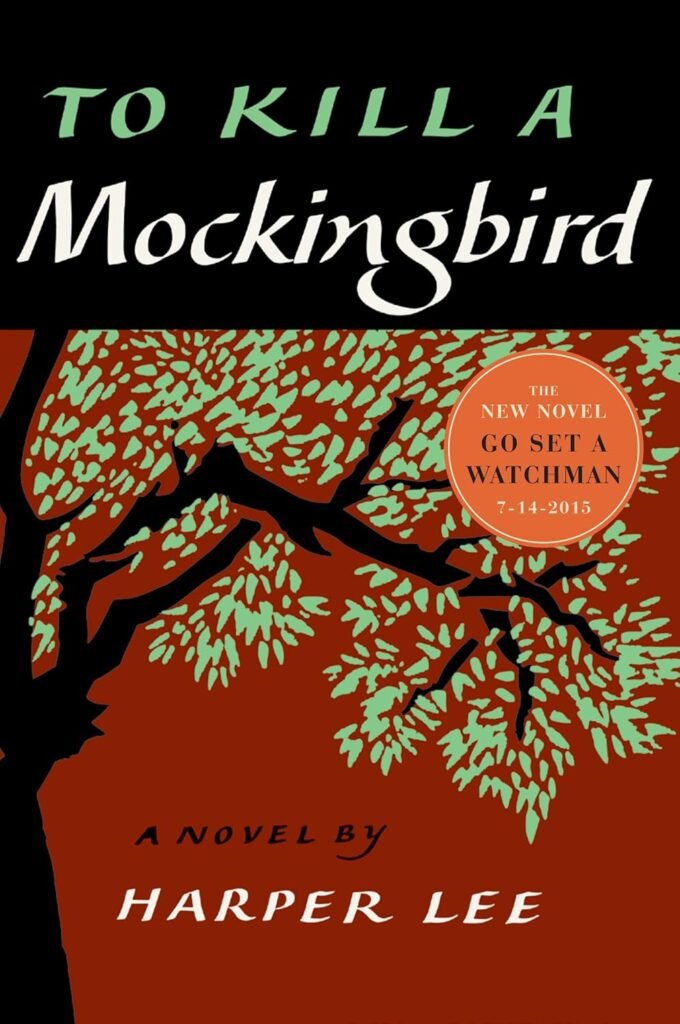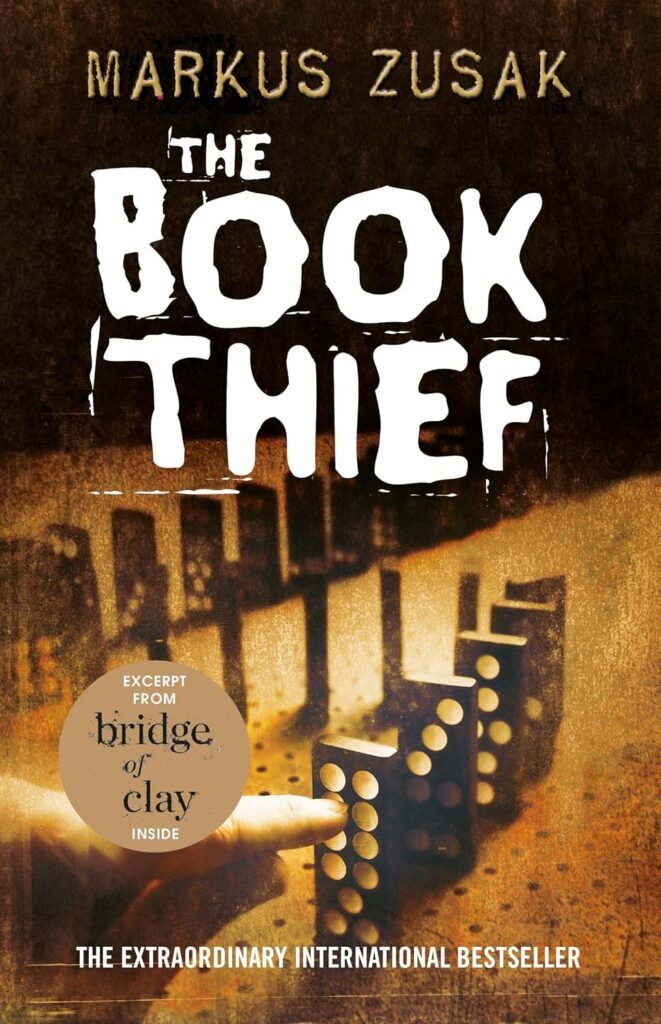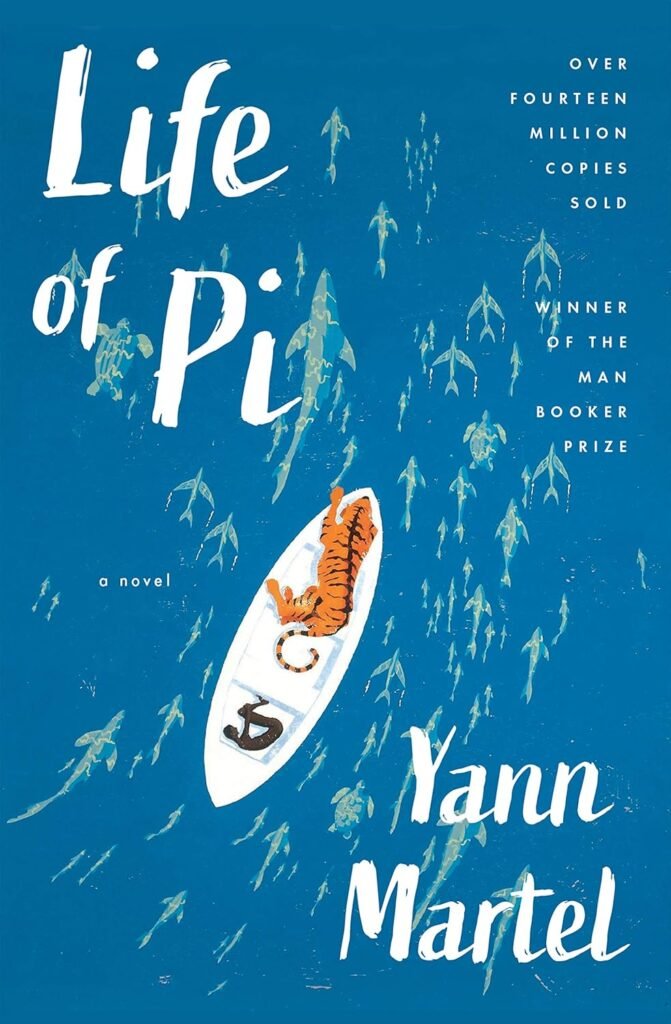
Introduction: The Power of Unforgettable Literature
Books possess the remarkable ability to transport readers into entirely new realms of experience, offering a unique blend of emotional and intellectual engagement. In the world of literature, there are certain books that transcend mere storytelling; they delve deep into the human psyche, challenge established perceptions, and evoke profound emotions. These are the works that remain with readers, lingering in their thoughts long after the final page has been turned.
Unforgettable literature has the power to leave readers utterly speechless. This isn’t just about great writing or compelling narratives; it’s about the broader impact a book can have, reshaping how we see the world and our place in it. The books included in this list are those that manage to disrupt the comfortable paradigms, pushing readers to question, reflect, and even reevaluate their beliefs. They ignite conversations, inspire change, and most importantly, echo through the halls of one’s mind for years to come.
The emotional resonance of such literature is profound. Stories that evoke deep feelings—whether it be joy, sorrow, anger, or hope—become etched in our memories. They create an enduring connection between the reader and the narrative, guiding the reader through a journey of self-discovery and empathy. Meanwhile, the intellectual challenge posed by these books encourages readers to think critically and engage with complex ideas, often leading to a personal transformation.
As we delve into the list of ten books that will leave you speechless, consider not only the craftsmanship of their narratives but also the lasting impressions they promise to impart. These books have been chosen for their unparalleled ability to touch hearts, provoke thought, and, ultimately, change lives. They exemplify the true power of unforgettable literature, reminding us why we love to read and the profound impact a truly excellent book can have.
Book 1: ‘To Kill a Mockingbird’ by Harper Lee
‘To Kill a Mockingbird,’ authored by Harper Lee, is a seminal work in American literature. Published in 1960, the novel is set in the racially segregated Southern United States during the 1930s. The story unfolds in the fictional town of Maycomb, Alabama, seen through the eyes of Scout Finch, a young girl. Her father, Atticus Finch, is appointed to represent Tom Robinson, an innocent black man accused of raping a white woman.

The historical context of “To Kill a Mockingbird” is deeply intertwined with the Civil Rights Movement, which was gaining momentum at the time of the book’s publication. The novel exposes the harsh realities of racial injustice, vividly depicting the extreme prejudices and systemic discrimination that African Americans faced. Atticus Finch’s unwavering moral compass and his commitment to justice serve as a stark contrast to the ingrained racism of the society around him.
The historical context of ‘To Kill a Mockingbird’ is deeply intertwined with the Civil Rights Movement, which was gaining momentum at the time of the book’s publication. The novel exposes the harsh realities of racial injustice, vividly depicting the extreme prejudices and systemic discrimination that African Americans faced. Atticus Finch’s unwavering moral compass and his commitment to justice serve as a stark contrast to the ingrained racism of the society around him.
One of the novel’s central themes is the moral growth of Scout and her brother, Jem, as they navigate their understanding of good and evil. Through their father’s example, they learn about empathy, integrity, and the importance of standing up for what is right, even when it is difficult. The book’s poignant exploration of these themes encourages readers to reflect on their conceptions of morality and justice.
Key moments in the book that contribute to its lasting impact include the unjust trial and subsequent conviction of Tom Robinson, which highlight the systemic flaws in the judicial system. Another significant moment is when Atticus teaches Scout the vital lesson of understanding others by “walking in their shoes.” These scenes, coupled with Lee’s compassionate characterization, resonate deeply with readers and underscore the ongoing relevance of the novel’s messages.
‘To Kill a Mockingbird’ continues to be a timeless piece, lauded for its profound narrative and its unflinching examination of difficult social issues. The book’s enduring appeal lies in its ability to inspire critical thought and conversations about racial inequality, moral courage, and human empathy.
Book 2: ‘1984’ by George Orwell
‘1984’ by George Orwell stands as one of the most seminal works of modern literature, offering a chilling exploration of a dystopian future. Set in a world where the Party, led by the omnipresent and mysterious Big Brother, exercises total control over all aspects of life, the novel paints a bleak and harrowing picture of totalitarianism. The pervasive system of surveillance, epitomized by the ever-watchful telescreens, ensures that citizens are constantly monitored, with their privacy and freedoms systematically obliterated.

Orwell’s narrative, ‘1984,’ follows Winston Smith, a low-ranking member of the Party who begins to question the oppressive regime. As Winston navigates through the severe and unforgiving environment of Oceania, he becomes increasingly aware of the extent to which the Party manipulates reality and truth. The erasure of individual thought and the brainwashing techniques employed by the state serve not only as a commentary on totalitarian practices but also a stark warning about the dangers inherent in such systems.
The novel’s hauntingly prophetic qualities are evident in its exploration of themes like surveillance, propaganda, and the loss of individuality. Concepts such as “doublethink” (the power of holding two contradictory beliefs simultaneously), “Newspeak” (a language designed to diminish the range of thought), and the idea that “Big Brother is watching you” have permeated contemporary discourse, resonating with modern-day discussions about privacy, government overreach, and freedom of thought.
‘1984’ leaves readers speechless not just due to its gripping plot and the harrowing fate of its protagonist, but because it forces a confrontation with uncomfortable truths about power, control, and human nature. Orwell’s ability to foresee elements of the modern world through the lens of a dystopian future compels readers to reflect on their reality, making ‘1984’ an enduring masterpiece that continues to evoke awe and introspection.
Book 3: ‘The Road’ by Cormac McCarthy
Set against the backdrop of a post-apocalyptic world, Cormac McCarthy’s ‘The Road’ presents a haunting narrative that follows the austere journey of a father and his young son. The desolate environment they traverse is marked by its starkness and scarcity, a landscape reduced to ashes and ruin. Society, as understood by modern norms, has collapsed entirely, forcing the pair to scavenge for food and shelter while evading threats both human and environmental.

McCarthy’s minimalist prose strips the story of ‘The Road’ down to its raw elements, mirroring the barrenness of the world he describes. His sparse, yet evocative use of language shortens the emotional distance between the reader and the characters, creating an immersive experience that accentuates the novel’s underlying themes of survival and love. Every word is measured, every scene meticulously crafted to amplify the profound risk and vulnerability of the human condition in such a setting.
At its core, ‘The Road’ is a meditation on the enduring bond between a father and his son. Their relationship, forged in the fires of a world gone cold, illuminates both the best and worst aspects of humanity. It is through this bond that McCarthy explores the limits of parental love and the moral complexities inherent in an existence constrained by such extreme adversity.
The novel’s power to evoke deep emotional responses lies not only in its bleak narrative but also in its moments of tenderness and hope. Despite the overwhelming despair, the father and son’s mutual dependence and singular love offer a glimmer of light in the otherwise relentless darkness. This juxtaposition effectively magnifies the emotional weight of the story, leaving an indelible mark on the reader.
‘The Road’ stands as a testament to what humanity can endure and the profound emotional depth literature can achieve. It compels the reader to confront both the external and internal landscapes of desolation, offering a powerful, unforgettable experience.
Book 4: ‘Beloved’ by Toni Morrison
‘Beloved,’ a masterpiece by Toni Morrison, set against the historical backdrop of post-Civil War America, offers a profound exploration of slavery and its harrowing aftermath. The narrative centers on Sethe, an escaped slave wrestling with the haunting memories of her past and the ghost of her deceased daughter, Beloved. Morrison’s powerful storytelling captures the reader’s attention with its unflinching portrayal of trauma, memory, and identity.

The novel, ‘Beloved,’ uniquely scrutinizes the horrors of slavery through its intricate narrative structure filled with flashbacks and haunting episodes. Morrison brilliantly intertwines the past and present, unveiling the characters’ suffering and struggles. Her lyrical prose provides a viscerally emotional experience, drawing readers into the characters’ lives with an intensity that leaves a lasting impact. Each sentence resonates with a poetic rhythm, further enhancing the emotional weight of the story.
One of the most compelling aspects of ‘Beloved’ is its exploration of trauma and its ripple effects across generations. Morrison delves into the haunting memories that enslaved individuals, like Sethe, carry with them. These memories are not merely recollections but living entities that shape and define their present lives. The novel eloquently addresses the psychological scars left behind, emphasizing that the past is never truly past.
Identity is another crucial theme that Morrison navigates with masterful subtlety. Sethe’s journey is as much about reclaiming her sense of self as it is about confronting her painful history. The character’s struggle to define her identity amidst the remnants of slavery offers readers a poignant reflection on the human spirit’s resilience.
Toni Morrison’s ‘Beloved’ is a transformative literary work that moves beyond a mere recount of historical events. It presents a relatable and deeply emotional human experience. The interplay of trauma, memory, and identity renders ‘Beloved’ a timeless narrative, compelling readers to reflect on the enduring impact of history and the strength required to overcome its shackles. This potent blend of storytelling and lyrical prose ensures that ‘Beloved’ is a book that will indeed leave readers speechless.
Book 5: ‘The Book Thief’ by Markus Zusak
Set primarily during World War II, ‘The Book Thief’ by Markus Zusak offers an extraordinary narrative that intertwines history with fiction. The story unfolds in Nazi Germany and is uniquely narrated by Death, providing readers with a perspective that is both chilling and thought-provoking. The protagonist, a young girl named Liesel Meminger, discovers the transformative power of words and books amidst the harrowing backdrop of war and oppression. This poignant tale addresses profound themes such as love, loss, and the enduring courage of the human spirit.

What sets ‘The Book Thief’ apart is its narrative style. Death as the narrator adds a layer of omnipresence that allows for introspective and philosophical insights, making the narrative deeply reflective. The personification of Death as a weary, almost compassionate observer contrasts starkly with the brutality of the human conflicts unfolding, providing a unique lens through which to view the era. Liesel’s journey of resilience is poignantly illustrated through her relationships with her foster parents, the Jewish man hiding in their basement, and her new-found friends in her war-torn town.
Themes of love and loss are intricately woven through Liesel’s experiences. The bonds she forms are tender and fraught with the looming threat of loss, symbolic of the fleeting nature of security during times of war. Perhaps most central is the theme of the power of words. Liesel’s acts of book thievery are acts of defiance and survival. Books become her sanctuary and her means of reclaiming agency in a world filled with an overwhelming sense of helplessness. The story underscores how literature serves as a beacon of hope and a force of resistance against tyranny.
‘The Book Thief’ leaves a lasting impression due to its original perspective and the emotional depth of its storytelling. Through its powerful narrative and poignant themes, Markus Zusak’s work stands as a testament to the enduring power of words and the unyielding resilience of the human spirit.
Book 6: ‘Life of Pi’ by Yann Martel
Life of Pi by Yann Martel is a remarkable tale that intertwines survival, faith, and the nature of reality. The novel introduces readers to Piscine Molitor Patel, known as Pi, who survives a shipwreck on the Pacific Ocean. Stranded on a lifeboat, Pi is faced with the daunting task of surviving alongside a ferocious Bengal tiger named Richard Parker. The narrative masterfully explores Pi’s resourcefulness and resilience as he navigates the perils of the open sea, battling both nature and his own internal fears. His interactions with Richard Parker form the crux of the story, creating a tense yet symbiotic relationship that is as fascinating as it is terrifying.

Martel’s work delves deeply into themes of faith and storytelling. The novel, ‘Life of Pi,’ often oscillates between moments of stark, unflinching realism and episodes of profound spiritual reflection. Pi, drawn from a Hindu family but curious about Christianity and Islam, embodies a blend of spiritual beliefs that sustain him through his ordeal. This exploration of faith is woven seamlessly into the narrative, prompting readers to reflect on their own beliefs and the nature of divinity.
Reality itself is a fluid concept within the book. As Pi recounts his story, readers are drawn into a world where the boundaries between truth and fiction blur. The fantastical elements of his journey raise questions about the very nature of storytelling and truth. Martel’s clever narrative structure culminates in an ambiguous ending that leaves readers questioning the veracity of Pi’s tale. Did he really live through this extraordinary experience with a tiger, or is there a more brutal, less magical explanation?
The philosophical depth of Life of Pi, combined with its gripping adventure and Martel’s skillful storytelling, makes it a truly unforgettable read. The novel’s ability to provoke thought about faith, survival, and the essence of reality ensures that it remains etched in the reader’s mind long after the last page is turned.
Book 7: ‘A Little Life’ by Hanya Yanagihara
‘A Little Life,’ a profound work by Hanya Yanagihara, centers around four college friends: Jude, Willem, JB, and Malcolm. As they transition from bright-eyed students to adults navigating the complexities of New York City life, the narrative zeroes in on Jude, a brilliant yet enigmatic litigator with a deeply painful past. Jude’s experiences of trauma and abuse are gradually unveiled, exploring how these harrowing events shape his interactions, mental health, and physical well-being.

The intricate portrayal of friendship is a cornerstone of ‘A Little Life.’ Yanagihara meticulously examines the unwavering support these friends provide Jude, even as they confront their own struggles. Willem, a compassionate actor, emerges as a steadfast companion, whose loyalty and understanding become a lifeline for Jude. Through these relationships, the novel delves into the profound ways in which human connections can both heal and exacerbate personal wounds.
Thematically, ‘A Little Life’ is unrelenting in its depiction of trauma and recovery. Yanagihara does not shy away from the raw and visceral aspects of suffering, ensuring readers are intimately acquainted with Jude’s relentless inner battles. This unflinching approach to storytelling evokes intense emotional experiences, making the narrative both compelling and, at times, challenging to process. However, it is through this rawness that the book leaves a lasting impact, encouraging readers to confront and reflect on the darker aspects of human existence.
The profound emotional depth of ‘A Little Life’ has garnered both acclaim and criticism. Its graphic depictions of pain and heartbreak are undeniably powerful, pushing the boundaries of what readers can endure. Yet, it is precisely this intensity that cements the novel’s status as a masterful exploration of resilience. ‘A Little Life’ is not merely a story about suffering; it is a testament to the strength required to survive and the enduring power of friendship that ultimately defines us.
Conclusion: Literature’s Lasting Imprint
The books we have explored share a unique capacity to leave readers awe-stricken, speechless, and profoundly moved. Despite differing in genre, style, and narrative, these works are bound by their extraordinary storytelling prowess. They provoke thought, ignite emotions, and linger in the mind long after the last page is turned. Each of these books offers a distinct narrative journey, yet they all converge in their ability to challenge perspectives, evoke deep reflection, and inspire conversation.
Storytelling serves as a powerful medium through which authors can explore complex themes and humanity’s multifaceted nature. Whether it’s the chilling dystopia of George Orwell’s “1984,” the poignant exploration of racism in Harper Lee’s “To Kill a Mockingbird,” or the masterful psychological depth in Fyodor Dostoevsky’s “Crime and Punishment,” these narratives possess an almost magical ability to connect with readers on a deeply personal level. They compel us to examine our world, understand different viewpoints, and, most importantly, understand ourselves.
The emotional and cognitive engagement these books demand from their readers is an intrinsic part of their lasting impact. Works like Toni Morrison’s “Beloved” or Gabriel Garcia Marquez’s “One Hundred Years of Solitude” envelop readers in richly constructed worlds, offering not only a temporary escape but also a lasting imprint on our consciousness. Through their intricate plots and profound characters, they leave us pondering long after we have closed the book.
Indeed, these books underscore the timeless power of literature. They are testaments to the fact that a well-crafted story can transcend its written form to become an enduring influence in our lives. As you embark on the journey through these recommended reads, prepare to be captivated, challenged, and transformed. Experience firsthand the remarkable ability of literature to leave you speechless and imprinted with its lasting essence.